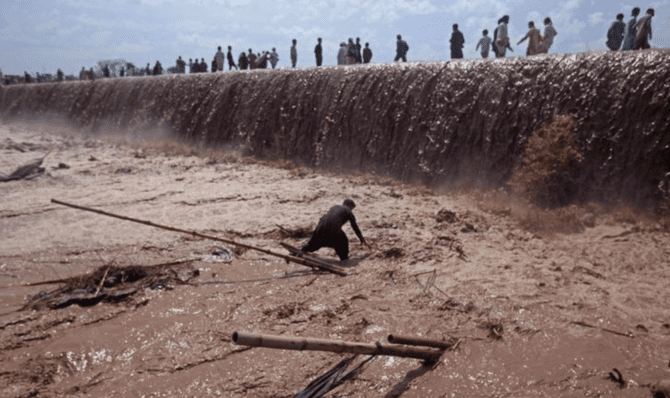Climate change indicates the long-term changes in temperatures and patterns. Most of the times these shifts are natural but somehow they are also connected to human activities. It is because human activities are the main culprit of climate change causing harm to the environment. In order to bring a betterment towards the climatic change there are various measures a human can take. In order to have an insight of these issues and our contribution towards the betterment, keep reading this blog post.
Climate change could have been easily expected to become a living reality from being a mere scientific speculation in many regions across the world. In the last 8000 years the climate of earth has been subject to constant change which includes many ice ages and warmer periods. The advent of human civilization on planet earth altered the rate at which climatic variations naturally occurred. The current trends in climate change and mainly rising temperatures dates back to the industrial revolution. According to a report by NASA, the global average temperature has proliferated by approximately 1.1 degree Celsius since 1880.
Pakistan in this case is no exception. In the last few months’ floods have evidently wreaked havoc, declaring it a national emergency across the country. As per recent reports by the National Disaster Management Authority (NDMA), the death toll has reached to 937., including 343 children and leaving additionally 30 million homeless, in areas mainly covering Sindh and Baluchistan.
On the national level, the government announced an immediate release of Rs. 5 billion to National Disaster Management Authority and another Rs. 37.2 billion as cash relief for the flood affectees. International partners also on the other hand offered monetary assistance. Noteworthy among them are the European Union, United States, China, United Nations and the World Bank. United Nations pledged $3 billion for their agencies across Pakistan while World Bank announced an assistance worth of $350 million. At the same time, the World Food Programme came up with $110 million while $20 million sent in by the Asian Development Bank.
Climate related emergencies in Pakistan could be well predicted fairly easily, since Pakistan had been making it to the top 10 most vulnerable countries in Climate Risk Index. for last 20 years. The country has faced 173 extreme weather events alongside 10,000 climate-induced fatalities and financial losses with billions
This year, the country broke its past 30 years’ records by experiencing 133% above the average rainfall in the current monsoon season. Besides, it also saw more than 7,000 glaciers melting in various regions. Glaciers in Gilgit Baltistan and Khyber Pakhtunkhwa regions are rapidly melting, creating more then 3,000 lakes.
Injustice is openly felt in the country, because Pakistan contributes less than 1% of the greenhouse gasses but by its geography, it has become extremely vulnerable to climate change. Pakistan’s climate minister Sherry Rehman claimed that literally one third of the country is underwater currently. Also, it is located at a place where it bears the brunt of two major weather systems.
The government of Pakistan along with the United Nations is working to reduce impact of sudden flood outbursts by installing warning systems and protective infrastructure but a lot more needs to be done in-order to contain the issue before it causes further devastations. A few measures that can be taken include; moving away from fossil fuels towards other renewable options, switching to sustainable transport, improved farming methods and encouraging vegan diets, restoration of nature to absorb more carbon, protecting forests and oceans, and reducing plastic use.
The adoption of these measures will help reduce the impact of already occurring climate change and will help the country fight effectively against it. The above mentioned losses could get worse with time if climate changed is not treated as first priority. Loss of lives and livelihood, people being left homeless, shutdown of industries and factories, and other similar incidents will keep repeating if a timely action is not ensured. The government along with civil society and the global community at large, needs to make sure an efficacious plan of action is drawn and implemented upon in order to save the humanity before it is too late.
Also, a few recommendations, if worked upon can help combat the menace of climate change before it causes even more losses to the humanity. These recommendations include reduction in energy use at home and in offices, eating less meat and dairy, respecting and protecting green spaces, switching to renewable energy as much as possible, putting a price on carbon, implementation of climate smart agriculture and ending fossil fuel subsidies. With the help of a carefully designed strategy, these recommendations can be implemented upon, and the threat of climate change can be curbed because we are the first generation experiencing climate change and probably the last to do something about it.




